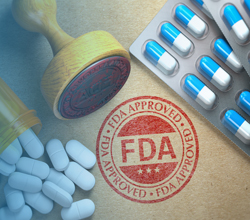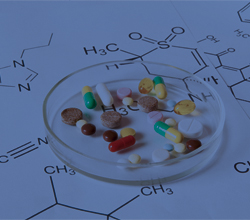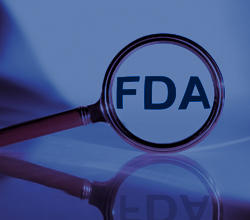
Good Documentation Guideline (Chapter <1029> USP)
 Dr. Afsaneh Motamed Khorasani
Dr. Afsaneh Motamed Khorasani
 60 Min
60 Min
Product Id: 705130
This webinar will familiarize participants with USP Chapter <1029> on good documentation guidelines. This session will wrap up the general concept and will provide information as to what needs to be documented in certain records.

Quality Control of Microbiological Media, Reagents and Test Kits
 Michael Brodsky
Michael Brodsky
 60 Min
60 Min
Product Id: 703599
The webinar will discuss QC best practices and procedures for verifying the suitability and performance characteristics of microbiological media and reagents.

Product Stability Testing Program - Designing and Sustaining New and Existing Programs
 Charity Ogunsanya
Charity Ogunsanya
 90 Min
90 Min
Product Id: 703000
This life science product stability testing webinar will explain, in detail, the requirements of the FDA’s drug stability guidelines that are stipulated for drug products and how to design a product stability testing plan that can be applied to new or modified products in the pharmaceutical, biotechnology and medical device industries.

Proper Execution of Annual Product Reviews
 Danielle DeLucy
Danielle DeLucy
 60 Min
60 Min
Product Id: 704993
This webinar will give a brief overview of the general procedure for the preparation and documentation of the Annual Product Quality Review and also focuses on the regulations and the regulatory requirements as per US and Europe.

An Introduction to FDA's Regulation of Human Cells, Tissues, and Cellular and Tissue-Based Products (''HCT/Ps'') including Stem Cell-Based Drug Products for Human Use
 Karl M. Nobert
Karl M. Nobert
 90 Min
90 Min
Product Id: 701927
This webinar will review FDA's regulatory oversight of stem cell-based products when used in humans and analyze its potential impact on the industry in the future. Learn FDA's criteria for marketing and promotion of stem cell-based products for therapeutic application.

Implementation and Management of GMP Data Integrity
 Danielle DeLucy
Danielle DeLucy
 90 Min
90 Min
Product Id: 705029
Attend this webinar to learn the regulatory expectations for data integrity during CGMP inspections. The course will review examples of data integrity pitfalls, part 11 compliance data integrity issues, FDA citations related to data integrity. It will teach you how to improve data integrity in a laboratory environment.

Japan: Regulatory Compliance Requirements for Life Science Products
 Robert J Russell
Robert J Russell
 90 Min
90 Min
Product Id: 702979
This training on Japanese regulatory compliance requirements will explain the country's regulations and processes (including clinical trials, filings, etc.) and use real world experiences to show how compliance issues are culturally handled for life science products in Japan.

Bioanalytical Methods Validation
 Edward O Connor
Edward O Connor
 60 Min
60 Min
Product Id: 701769
This training on bio-analytical methods validation will help you to understand the FDA and EMA guidance for Instrumental, ligand binding and cell-based assays and also review of recent 483s impacting validation.

Understanding FDA Import Alerts: What Are They and Recommendations For Removing Your Company And Products From An Alert
 Karl M. Nobert
Karl M. Nobert
 90 Min
90 Min
Product Id: 703313
This webinar provides attendees with an introduction to FDA Import Alerts and what they are, examine why they are issued, show you where to locate them and how to determine whether a company or product is on one, and finally, provide strategic recommendations for removal from an alert.

Making Data Driven Decisions using Statistical Hypothesis Testing
 Steven Wachs
Steven Wachs
 60 Min
60 Min
Product Id: 704211
This training program will cover statistical hypothesis testing concepts including: null and alternate hypotheses, test statistics, p-values, confidence intervals, confidence levels, power, power curves, and sample sizes. Several types of hypothesis tests will be covered such as 1 and 2-sample means tests, tests of variances, and tests of proportions. Equivalence tests will also be discussed. The importance of selecting appropriate sample sizes will be stressed.

Understanding and Implementing a Technology Transfer Process
 Steven Laurenz
Steven Laurenz
 60 Min
60 Min
Product Id: 705031
This webinar will discuss the steps to guide the technology transfer for the successful implementation, ensures that products of the highest quality are delivered to the patients along with meeting the business demands of the company.

Performing an Effective, Robust and Compliant Sterility Failure Investigation: How to Avoid Common Mistakes
 Charity Ogunsanya
Charity Ogunsanya
 90 Min
90 Min
Product Id: 703885
This training program will highlight mistakes often made when corrective and preventative actions are not clearly identified and applied during a manufactured product sterility test failure investigation because an ineffective investigational procedure and tool was used to conduct a sterility test failure investigation. The webinar will also illustrate how avoiding such common mistakes will ensure that these types of products meet the sterility requirements USP <71> and other regulatory guidelines applicable to finished products, bulk drug substance, raw materials or excipients.

4-Hr Virtual Training: How to Respond to an FDA Investigation
 Joy McElroy
Joy McElroy
 4 hrs
4 hrs
Product Id: 704549
This FDA investigation training program will deconstruct best practices for handling unannounced FDA visits, responding to a 483 or a warning letter, and the effect of an FDA investigation. The program will also discuss basic concepts that should be employed by everyone regulated by the FDA and define processes for preparing for FDA audits.

Automating Assays for Clinical Diagnostics
 Todd Graham
Todd Graham
 60 Min
60 Min
Product Id: 703268
This webinar on automating laboratory assays will teach you how to translate an assay that is performed manually to one that is fully automated, with high quality and with proper validation and quality assurance for regulatory purposes.

SOP's for Bioanalytical Methods Validation
 Todd Graham
Todd Graham
 60 Min
60 Min
Product Id: 704916
This webinar will help you learn how to validate bioanalytical methods. This session will teach you the pitfalls behind bioanalytical methods validation, allowing one to transition between assays with ease.

Quality Risk Management Overview for Pharma, Biopharma and Combination Products - ICH Q9/ISO 14971
 Tanvir Mahmud
Tanvir Mahmud
 90 Min
90 Min
Product Id: 702422
This 90-minute webinar will cover principles and provide examples of tools for quality risk management that can be applied to different aspects of pharmaceutical quality. It will provide you with the knowledge and understanding needed to improve patient safety and also to prepare your organization for regulatory inspections.

CDISC Mapping 5: ADAM Models - ADSL, BDS and ADAE
 Sunil Gupta
Sunil Gupta
 90 Min
90 Min
Product Id: 704316
This training session is intended for anyone directly or indirectly responsible for the creation, content or validation of CDISC data sets, tables, and data lists used to support research, drug or medical device efficacy and safety in a regulatory submission. The program will provide effective and practical solutions to address real-world issues.

CDISC Mapping 4: SDTMs and ADAMs Examples (80%/20% Mapping Rule)
 Sunil Gupta
Sunil Gupta
 90 Min
90 Min
Product Id: 704313
This training program is intended for anyone directly or indirectly responsible for the creation, content or validation of CDISC data sets, tables, and data lists used to support research, drug or medical device efficacy and safety in a regulatory submission. Through case study analysis, the course will examine best practices to provide thoughts and ideas to develop or improve the CDISC mapping system.

Understanding Aseptic Technique and Cleanroom Behavior
 Danielle DeLucy
Danielle DeLucy
 60 Min
60 Min
Product Id: 704429
This training program will discuss how, in sterile compounding, aseptic technique is contributing to the prevention of microbiological contamination. It provides sterility, safety, and efficacy to the sterile product, especially various injections for patients. In this course, cleaning, gowning and proper methods of contamination control will be reviewed along with why clean rooms are designed the way they are.

Combination Drug/Device Products CGMPs - Final Rule
 John E Lincoln
John E Lincoln
 90 Min
90 Min
Product Id: 702810
This training on combination product regulations will evaluate the chief areas of concern or change in the new CGMP requirements for combination products, 21 CFR Part 4, and clarify many of the issues and questions that arise involving combination products.


























